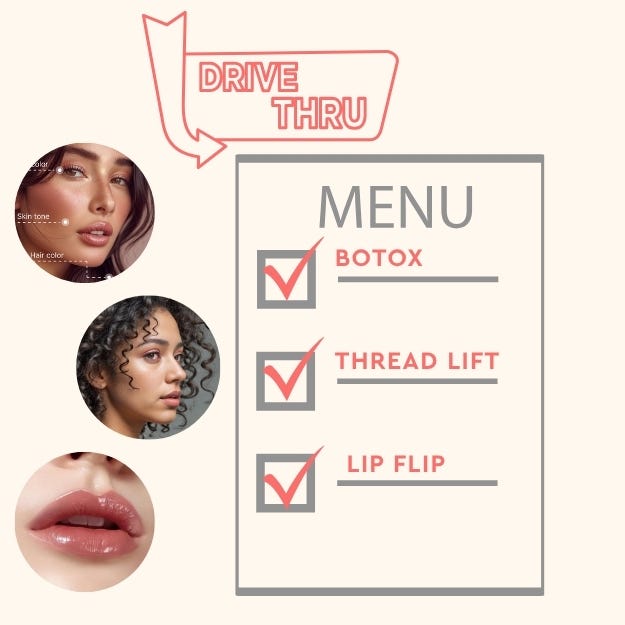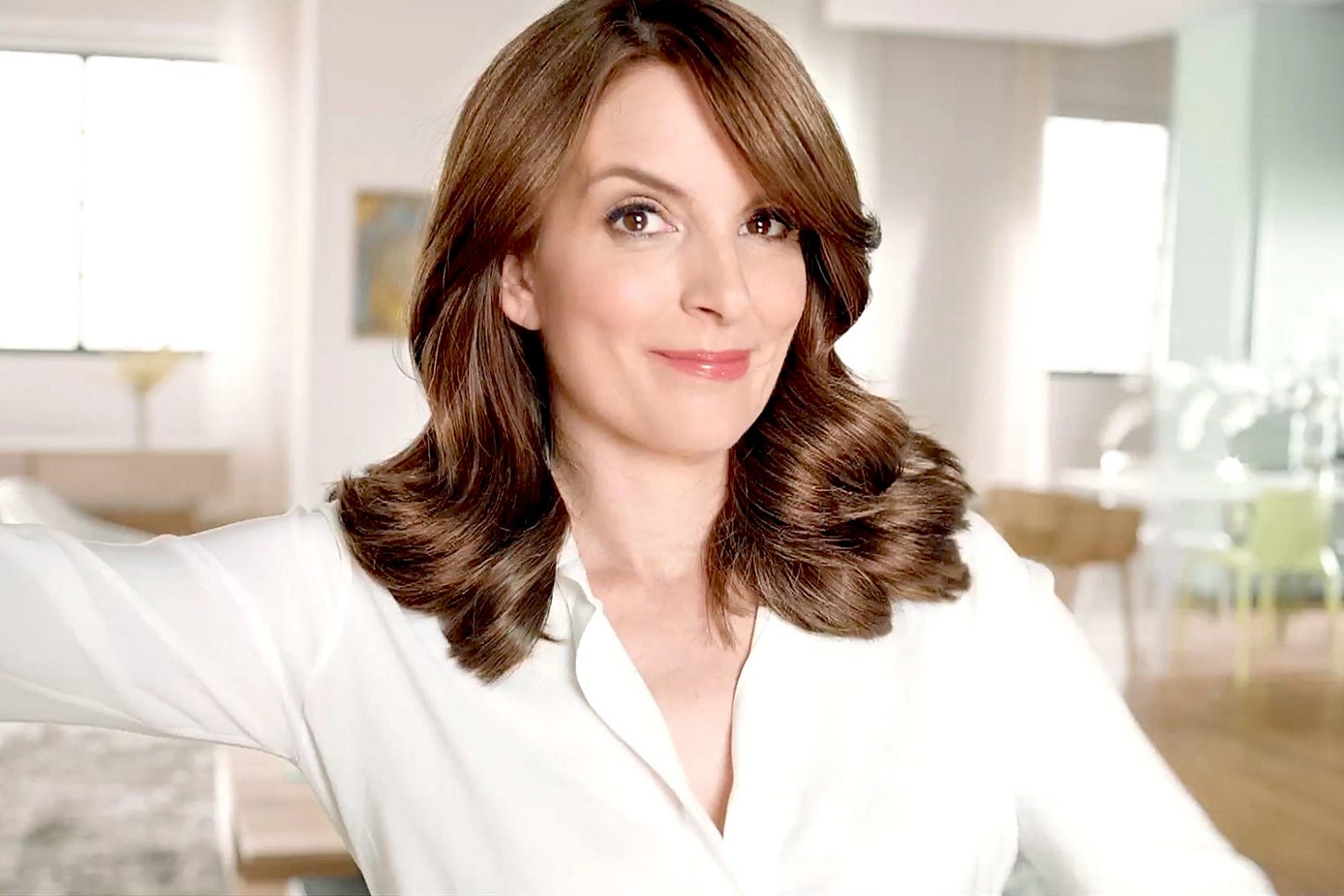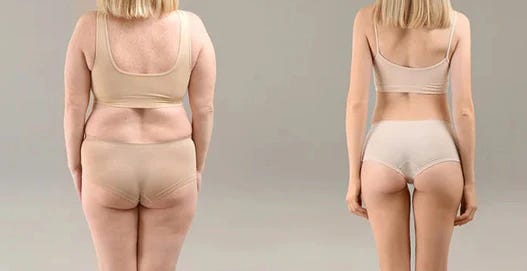We’re watching beauty become democratized in real time. Botox used to be reserved for housewives in Beverly Hills. Now it’s a touch-up between Zooms. Fillers, face lift threads, extensions, adding hair, removing hair — and what once cost thousands, left you bruised for weeks, will soon be accessible, and recoverable in time for dinner. The future of beauty looks like The Jetsons.
Tina Fey once joked that her thick, shiny hair was her “thing.” It made her feel beautiful. But she confessed on Amy Poehler’s new podcast, Good Hang, that when everyone started getting extensions, that specialness that she had naturally vanished. Her thing became everyone’s thing.
The same is happening everywhere. If everyone is on GLP-1, then no one is “naturally” thin. If you can map and manipulate height with growth hormones, then tall is just another setting. Strength, skin tone, jawlines, all of it can be engineered. And for the rest? Filters.
We are entering an era where perfection will be programmable.
Give me Bella Hadid’s snatched face. I’ll take a little Salma Hayek, a pinch of Penelope Cruz, maybe a Kardashian-level tweak with a built-in safety check that says, please don’t let me end up in the before photo on Botched.
We can spray tan, whiten our teeth, tint our lips, and lift everything that starts to drop. We can be 70 and look 30. So the real question is: what will beauty mean when EVERYONE looks good?
The answer is FLAW.
Not just any flaw, the beautiful flaw. The one thing that couldn’t be bought or replicated. Cindy Crawford’s beauty mark. Aimee Lou Wood’s smile. Padma Lakshmi’s scar, which healed in a way only her body would. Something not crafted in a lab or lifted in a clinic, but coded in your DNA. Something the world can’t reproduce and wouldn’t dare to.
After hundreds of years chasing perfection, the next beauty ideal might be the person brave enough to leave something untouched.
Yes, it’s dark. But technology is moving faster than our standards can keep up with. If AI can eliminate typos and smooth your face in real time, it won’t just edit our appearance, it will reshape our values.
Maybe the next big invention will be the algorithm that makes flaws beautiful again. Because one day, that flaw might be the only thing that’s truly yours. And when the dust settles, it might just be the most beautiful thing about you.
See any flaws in my theory? Go ahead, bestie, tell me.
This future won’t arrive overnight. But the shift is already happening. So ask yourself: of all the things you’d like to change about your appearance, which flaw would you keep?
We spend so much time pontificating about what we’d tweak, and some of us, with the means, are already doing it. “They all look the same!” shows up in the comments like a siren, but also a judgment. The shame spiral spins in a different direction as the likes, follows, and attention pile up.
Maybe it’s time we start amplifying the details that make us…us. Body positivity had a moment, but it feels like it evaporated. My call to action? Beautiful flaw positivity.
My flaw? My right-hand fingers are crooked. It’s why I never wear rings on that hand. My toes? Also weird. I won’t gross you out, we’re nearly at the end. But they’re mine. I have other flaws, but until this movement really takes off, I’m not oversharing. But these colliding fingers typed this article and the teeny toes will slowly walk back any harsh comments you leave.
And if I am right, you want to be ahead on this, beautiful flaws and all.









